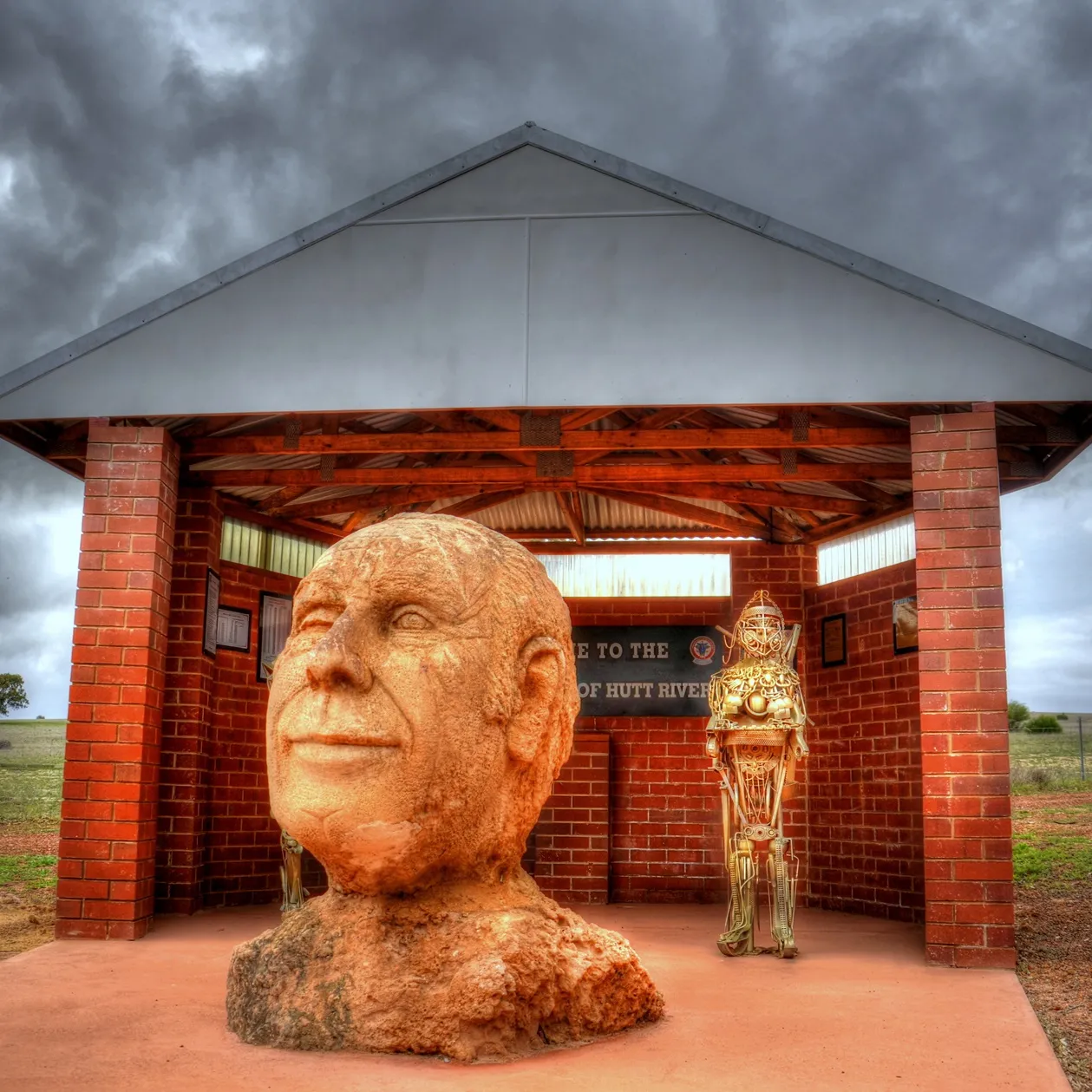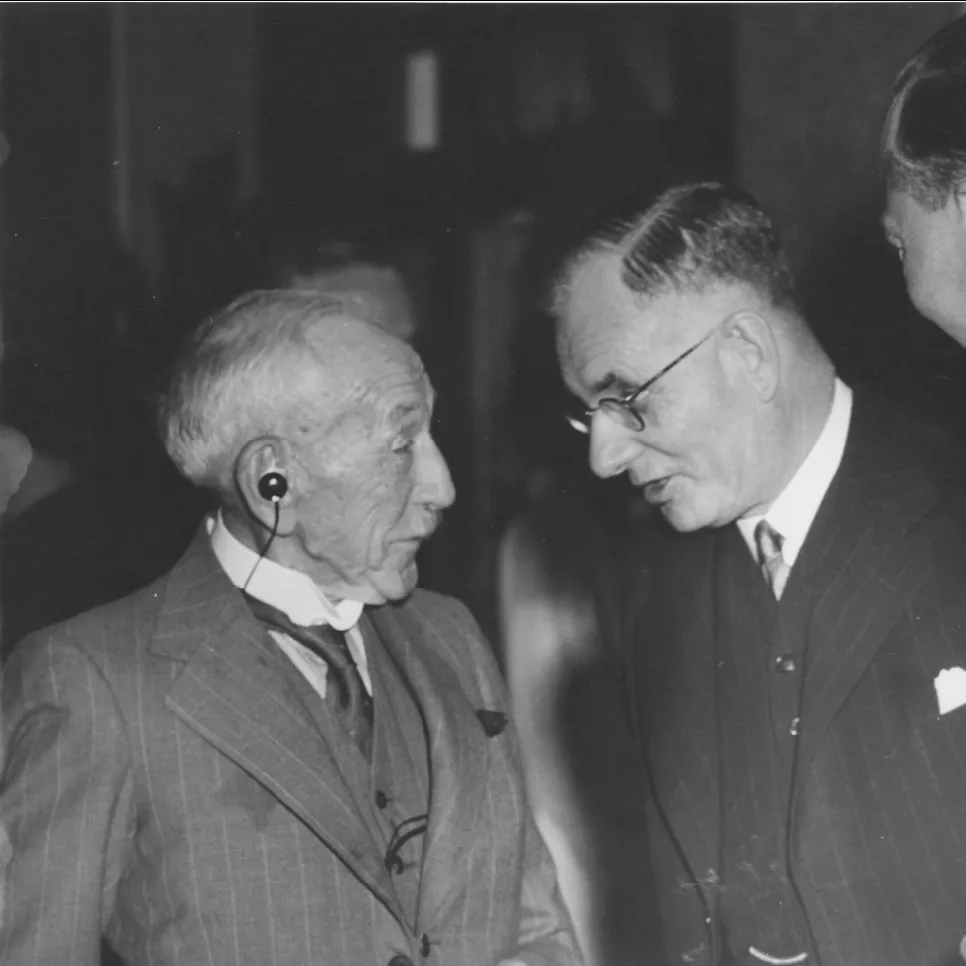Establishing the United Nations
- DateMon, 23 Feb 2015
The 24th of October is commemorated each year as United Nations Day.
On 24 October 1945, following the horror of World War Two (1939–1945), the United Nations Charter entered into force as an attempt by member states to maintain world peace and security, and to promote human rights, social and economic development and effective humanitarian responses to crises.
World War Two exacted a terrible human toll with more than 50 million dead. The League of Nations, which had been established in 1920 following World War One (1914–1918), and which had similarly sought international cooperation and the prevention of war, had clearly failed.
The United Nations was an attempt to replace the old League with a new international organisation that would be effective. The experience of World War Two made the task urgent, and the goodwill abundant.
The United Nations organisation established in 1945 had 51 member states. Today, there are close to 200. Nearly every nation on the planet.
The term ‘United Nations’ was first officially used in 1942 when 26 governments pledged to continue the war against fascism and Nazism and not to enter into separate peace agreements with Axis powers. This ‘United Nations Declaration’ was initiated by the US, the Soviet Union, Britain and China. Australia was among the other 22 countries to sign it and, as shall be discussed later, Australia played an important part in the UN’s establishment.
The need for a practical organisation was advanced during the war by the four main anti-Axis powers in the ‘Moscow Declaration’ of 1943 and at the Dumbarton Oaks conference in Washington DC in 1944, where proposals for the new international body were drafted. Later, at the Yalta Conference, in February 1945, further agreement was reached – by Roosevelt, Stalin and Churchill - on the framework and structure of the organization.
The turning point occurred in April–June 1945 when representatives of 50 nations attended the Conference on International Organisation in San Francisco, sponsored by the US, the Soviet Union, Britain and China, where the UN Charter was drafted and later signed on 26 June.
The first meetings of the UN General Assembly and Security Council took place in London in 1946. The UN moved to Manhattan, New York, in 1952, when its impressive headquarters overlooking the East River were completed.
The UN has six main organisational components. The most important two are the General Assembly (where member states debate and vote on resolutions) and the Security Council (which makes decisions on issues relating to war and peace). Reflecting the historical origins of the UN as an organisation based around the leading victorious Allies of 1945, the Security Council’s decisions are binding on all member states and its five permanent members - China, France, Russian Federation (formerly the Soviet Union), the United Kingdom and the United States - have individual veto power over issues brought before the Council. Ten additional countries are elected by the General Assembly to serve on the Security Council for two year terms.
The other main components of the UN are the Economic and Social Council (for global social and economic growth), the Secretariat (which serves the needs of the UN itself), the International Court of Justice and the United Nations Trusteeship Council (which oversaw the post-war decolonization process and which has been inactive since 1994).
Other UN agencies include World Health Organization (WHO), UN International Children’s Emergency Fund (UNICEF), UN Educational, Scientific, and Cultural Organization (UNESCO), UN Development Programme (UNDP), the World Food Programme and the World Bank Group. These agencies have helped scores of millions around the world.
The best-known UN agency in Australia is probably the UN High Commission for Refugees, which is in the news a lot. The UNHCR has been awarded the Nobel Peace Prize on two occasions: in 1954 and 1981. UNHCR has assisted millions of displaced persons and refugees. The UN itself received the award in 2001.
In 1948, the General Assembly adopted the UN’s Universal Declaration of Human Rights. Eleanor Roosevelt played an important role in its drafting and regarded it as a 'global Magna Carta'. It has been the main measure for human rights ever since, and the basis of various UN covenants.
Australia and the establishment of the UN
The moves towards a United Nations organisation during the War were initiated by the ‘Great Powers’ – the UK, France, US, Soviet Union and China. When the turning-point came in San Francisco, and a Charter put forward for approval, Australia’s delegation headed by Deputy Prime Minister, Frank Forde, and Minister for External Affairs, Herbert Vere Evatt, presented an independent Australian view. The 25 Australians, who included Jessie Street, successfully argued for an expanded role for the UN, beyond empowering the ‘Big Five’. As they saw it, peace and security required economic justice – not just the absence of war.
Evatt in particular worked closely with the small and medium powers at the conference and became their trusted ally. The Australian delegation failed in its efforts to remove the Security Council veto power but succeeded in broadening the ambit of the General Assembly so that it could discuss anything within the scope of the Charter.
As Christopher Shiel put it, in his address to the United Nations Association in Sydney on behalf of the Evatt Foundation in 2008:
'This was Evatt’s greatest victory. The Great Powers had brought to San Francisco a design for a General Assembly with severely limited powers. Evatt persuaded them to accept the Australian government’s approach and to agree to an Assembly with powers as comprehensive as those listed in the United Nations Charter. This put beyond dispute the Assembly’s right to fully discuss and make recommendations on two subjects which Australia at the time considered international co-operation and General Assembly support was essential: full employment and dependent peoples: economic justice - at home and abroad. Evatt also participated in the formulation of the Chapter in the Charter on trusteeship, which formed the basis for the subsequent involvement of the UN in decolonisation.'
Evatt left such a positive impression on those involved in the UN’s formation that he was elected President of the UN General Assembly in 1948. He presided over the UN’s adoption and proclamation of the Universal Declaration of Human Rights, describing it as:
'...the first occasion on which the organised community of nations had made a declaration of human rights and fundamental freedoms… millions of people, men, women and children all over the world would turn to it for help, guidance and inspiration.'









